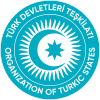Idealism (Turkey)
This article needs additional citations for verification. (December 2020) |
This article may be expanded with text translated from the corresponding article in Turkish. (November 2020) Click [show] for important translation instructions.
|
Idealism (Turkish: Ülkücülük, Ülkücü düşünce) is the name of Alparslan Türkeş and the Nationalist Movement Party lines, as a principle of the Nine Lights Doctrine.[1][page needed][2][3][4]
Origin[]
The origins of the name go back to the terms "millî mefkure (ülkü)" used by Ziya Gökalp and "millî ülkü" used by Nihal Atsız and Pan-Turkists. 1950–1953 it was used by during its years. Ülkü means "ideal" in terms of the word meaning. Nationalism is the equivalent of "idealism".[5]
On 3 May 1944, a large group protested the prosecution of Nihal Atsız in Istanbul as well as in Ankara[6] and his friends marched from the Ankara courthouse to Ulus square. Although the Turkism movement was a national policy in the state levels during the time of Atatürk, it begins with this event that it became a mass idea.
See also[]
- Alparslan Türkeş
- Nationalist Movement Party
- Nationalist Turkey Party
- Grey Wolves
- Hüseyin Nihal Atsız
- Nine Lights Doctrine
References[]
- ^ O'Sullivan, John (25 November 2006). The President, the Pope, and the Prime Minister: Three Who Changed the World. ISBN 9781596980341.
- ^ Alparslan Türkeş, Millî Doktrin Dokuz Işık, Kutluğ Yayınları, İstanbul, 1975
- ^ Taslaman, Caner (7 January 2011). Küreselleşme Süreci̇nde Türki̇ye'de İslam. ISBN 9786058808201.
- ^ O'Sullivan, John (25 November 2006). The President, the Pope, and the Prime Minister: Three Who Changed the World. ISBN 9781596980341.
- ^ "idealizm", TDK Genel Türkçe Sözlük
- ^ Landau, Jacob M.; Landau, Gersten Professor of Political Science Jacob M.; Landau, Yaʻaqov M. (1995). Pan-Turkism: From Irredentism to Cooperation. Indiana University Press. pp. 116–117. ISBN 978-0-253-32869-4.
- Islam and politics
- Idealism (Turkey)
- Political ideologies
- Political movements in Turkey
- Nationalist Movement Party
